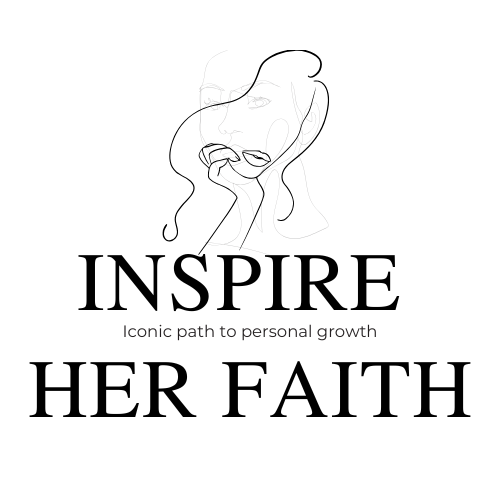
Motherhood is an incredible blessing from Allah, a journey filled with love, joy, and immeasurable responsibility. However, raising a child with special needs can make this journey more challenging, testing your faith, patience, and endurance.
As Muslim mothers, we constantly strive to maintain a balance between family, faith, and motherhood. Yet, when your child has ADHD, autism, developmental delays, or other special needs, this balance can often feel like an insurmountable task.
This is my story—a journey marked by trials, heartbreak, growth, resilience, and above all, an unwavering faith in Allah. I share this to offer hope and encouragement to other mothers walking a similar path.
Remember, our children with special needs are not merely a test; they are a vital part of our spiritual journey. Their presence molds us, challenges us, and ultimately leads us to a place of greater spiritual awareness and closeness to Allah.
From a Fairytale to a Reality Check: A Journey into Motherhood
Like many others, I entered my arranged marriage with dreams of a picture-perfect life. Raised in a religious family and academically accomplished—I had earned a gold medal in my MSc—I believed I was well-prepared for any challenge that life would throw at me.
Yet, in hindsight, I see now that I was living in a bubble of superficial religiosity. I was not truly connected to the essence of Islam; my Salah was inconsistent, and my hijab was worn more out of habit than conviction.
The early days of marriage were filled with excitement, and when I became pregnant, my joy knew no bounds. When my son was born healthy, I felt an overwhelming sense of gratitude. Yet, as time passed, I began to notice subtle differences.
He was extremely hyperactive, and his speech development was delayed. At first, I brushed it off, thinking it was just a phase. My financial situation was strained, so seeking professional help was not an option. I convinced myself that I could handle it, but as he grew, the differences became more apparent.
When my son turned two, the questions from family and friends began. “Why isn’t he speaking yet?” “Why is he so hyperactive?” The constant questioning and unsolicited advice only deepened my anxiety. Each comment felt like a dagger to my heart. Was this a test from Allah? Was my son truly different?
Facing the Reality: The Challenge of ADHD and Speech Delays
By the time my son turned three, he finally spoke his first word. We celebrated that small milestone as if it were a grand achievement. I decided to homeschool him because I couldn’t afford the specialized therapy he needed.
However, the criticism never stopped. People questioned my parenting, offering unsolicited advice that stung deeply. They saw only the surface; they could not fathom the emotional toll it took to raise a child with special needs.
Having studied nutrition during my undergraduate studies in Home Economics, I turned to my knowledge for help. I altered his diet, incorporating foods rich in omega-3 fatty acids and other nutrients that support brain development. Alhamdulillah, there was progress, albeit slow. While other children effortlessly reached their milestones, every small step my son took was a victory hard-earned.
When he turned five, we moved to Saudi Arabia. Again, formal schooling was not an option, so I continued homeschooling. His poor fine and gross motor skills made learning activities a constant struggle. He couldn’t hold a pencil properly, and I spent countless hours researching physiotherapy techniques to help him.
I encouraged free-hand coloring and other activities to improve his motor skills. It was exhausting and mentally draining, but we saw progress, Alhamdulillah.
Despite this, there were days when the weight of it all felt unbearable. My mental health deteriorated under the constant stress. Watching other children progress naturally while my son struggled for every achievement broke my heart.
Society’s judgment only added to the pressure. There were nights of endless crying during Tahajjud, where I felt like I was drowning under the weight of expectations. At times, I wondered if I was being punished for my past mistakes. The whispers of Shaitan filled my heart with doubt. Why was this happening to me?
Finding Strength in Umrah: A Turning Point
It wasn’t until I performed Umrah that my perspective shifted. In the sacred confines of the Kaaba, I felt the essence of Islam like never before. I realized that my struggles were not punishments; they were tests designed to bring me closer to Allah.
The Prophet Muhammad (PBUH) said,
“Whoever Allah wants good for, He tests them with hardship” (Bukhari).
This profound Hadith resonated deeply within me. I began to see my son’s condition as a means through which Allah was calling me closer to Him.
From that moment, my connection with Allah deepened. I started prioritizing my Salah and found solace in my prayers. I made continuous duas (supplications), seeking guidance and patience. Slowly, the burdens of motherhood felt lighter. My heart softened as I surrendered my worries to Allah, trusting in His plan for my son and me.
The Strain on the Marriage and Home Life
Raising a child with special needs not only challenges the mother but also strains the marital relationship. The constant stress, sleepless nights, and emotional turmoil inevitably affect the entire household. My marriage was no exception. The daily struggles, coupled with the feeling of helplessness, took a toll on our relationship.
There were moments when we felt disconnected, overwhelmed by the reality of our situation. It’s not an easy path. Some days, I felt motivated and full of faith, and other days, I felt like a complete failure. There were nights when I cried endlessly during Tahajjud, feeling suffocated and lost.
When your child throws uncontrollable tantrums, when your other children suffer because of the constant tension, when the home environment becomes a battlefield, it can feel like too much to bear. You blame yourself, question every decision, and wonder if you’re doing enough.
The suffocation, the emotional rollercoaster—only a mother in a similar situation can truly understand this pain. The only solace comes from your connection with Allah. Your duas (supplications) become your anchor, your charity (sadqa) your power, and you find strength in reciting.

Strategies to Cope with Stress and Self-Help Your Child
Despite the overwhelming nature of this journey, there are strategies that can help both you and your child thrive. Here are some approaches that have helped me navigate this path:
- Turn to Allah for Strength: Establishing a regular prayer routine and making continuous duas for guidance and patience can transform your state of mind. The Quran reminds us,
“Verily, with hardship comes ease” (Quran 94:6).
Seek solace in your connection with Allah and trust in His wisdom. - Acceptance: Embrace your child for who they are. They are not a punishment but a unique blessing from Allah, a means to draw you closer to Him. Your journey with them is paving your way to Jannah, inshaAllah.
- Seek Knowledge: Equip yourself with knowledge about your child’s condition. The more informed you are, the better you can support your child. I leaned on my background in nutrition to help my son, and it made a significant difference.
- Diet and Nutrition: Incorporate foods that support brain development, such as those rich in omega-3 fatty acids. Dietary changes can have a positive impact on your child’s progress.
- Homeschooling with Patience: If you’re homeschooling, take it one day at a time. Resist the urge to compare your child’s progress with others. Celebrate every small victory, for each step forward is a monumental achievement.
- Self-Care: Your well-being is crucial. Do not feel guilty for taking time for yourself. You cannot pour from an empty cup. Prioritize self-care to be the best version of yourself for your child.
- Ignore the Critics: People will always have opinions, but they do not understand your journey. Block out the negativity and focus on what is best for your child.
- Recite Surahs for Protection and Healing: Make daily recitations of Quranic verses like Surah Al-Fatiha, Ayat-ul-Kursi, and the last three Surahs (Al-Ikhlas, Al-Falaq, and An-Naas). Trust in the healing power of Allah’s words.
The Roller Coaster of Parenting a Special Needs Child
Today, my son is 12 years old. Alhamdulillah, he can now speak and perform basic tasks independently. But our journey has been a roller coaster filled with highs and lows.
We’ve celebrated moments of progress and endured setbacks that felt like starting all over again. Yet through it all, I’ve learned to see Allah’s flawless plan at work, even when I didn’t fully understand it. The Prophet (PBUH) said:
“No fatigue, nor disease, nor sorrow, nor sadness, nor hurt, nor distress befalls a Muslim, even if it were the prick he receives from a thorn, but that Allah expiates some of his sins for that” (Bukhari).
Every tear shed, every sleepless night, every hardship endured is an opportunity for spiritual growth and purification.
Embrace Your Journey, Trust in Allah
If you’re a mother of a child with special needs, know that you are not alone. Your struggles are seen by Allah, and He rewards your patience and perseverance. Your strength and love are a testament to His grace. In every challenge, remember that He is with you, guiding you through the toughest moments.
Join a support group, seek resources, and don’t hesitate to ask for help when you need it. Your well-being is just as important as your child’s, and embracing both can lead to a more fulfilling journey. Trust in Allah’s plan and know that brighter days are ahead.
Let’s come together in faith and support, lifting each other up with kindness and understanding. Share your journey and inspire others with your strength.



